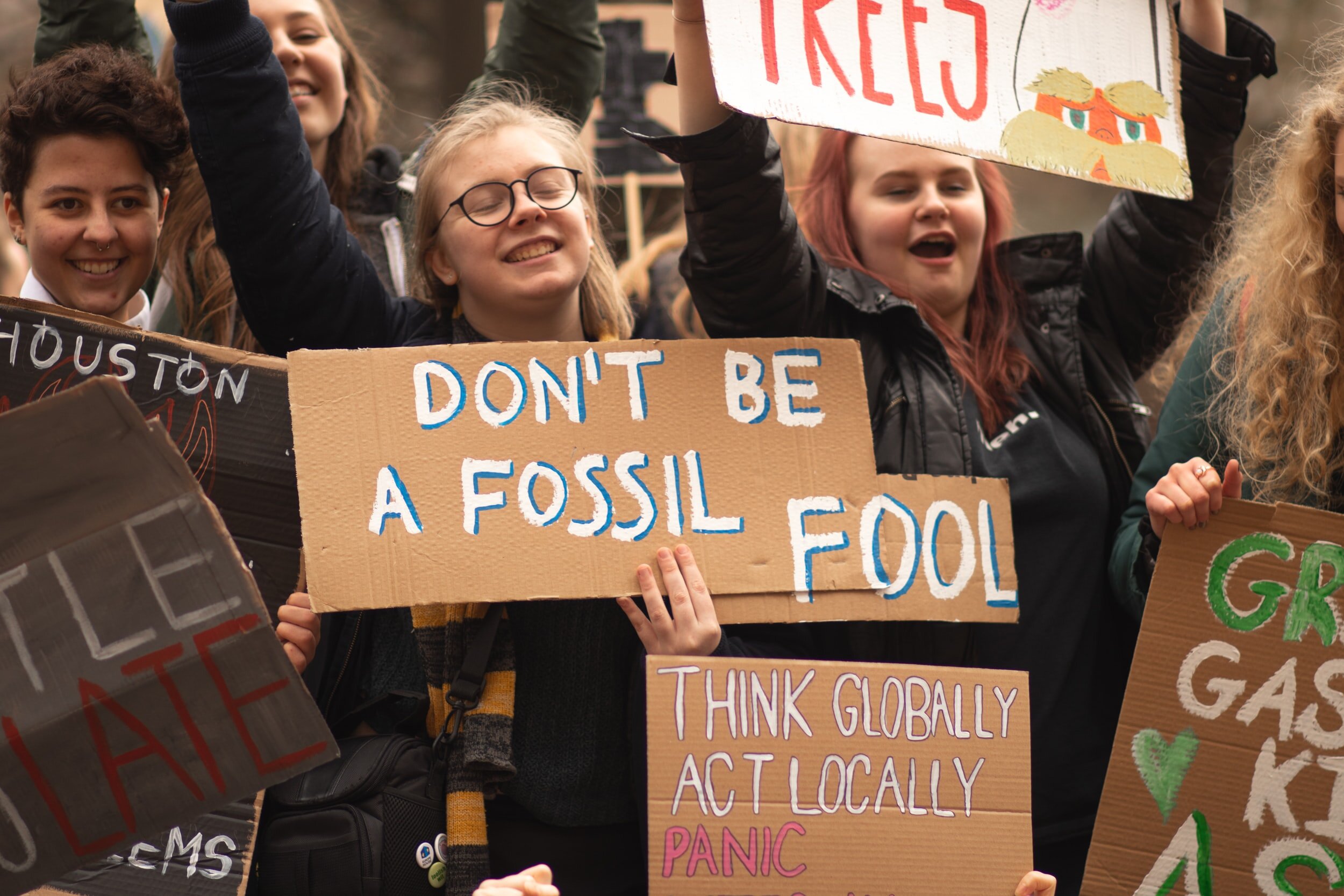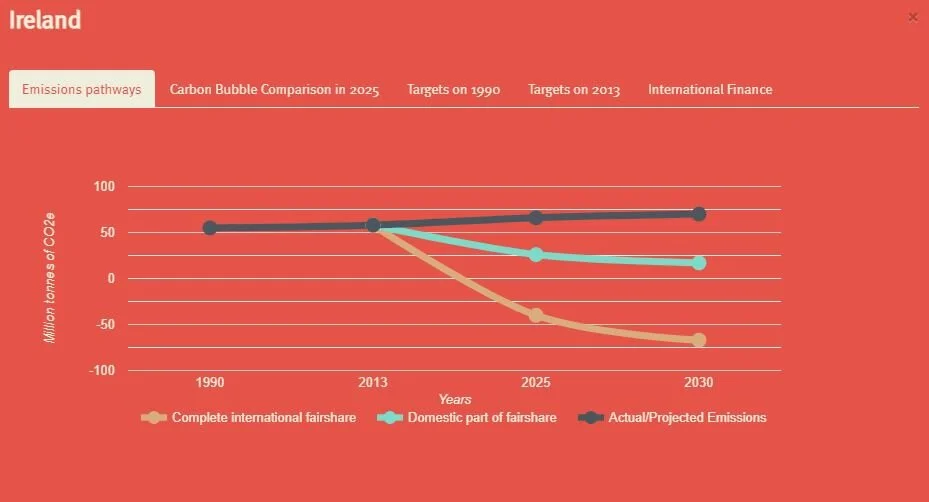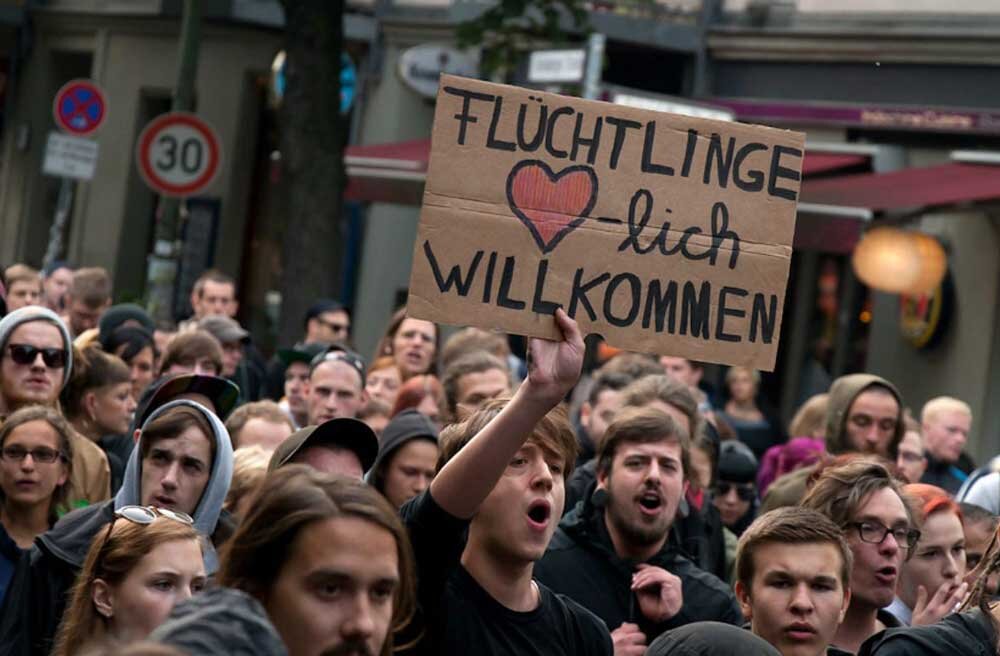
Why Your Carbon Footprint Matters
By now we’re certain that you’re all well aware of the concept of your carbon footprint, and how cutting your own emissions is essential in the fight against the Climate Crisis.
However, as people become more proactive in the fight against the Climate Crisis, there can be some debate about the impact that individuals can have versus the role that major emitting corporations play – and that this can even be a deceptive tactic to get the world’s biggest polluters off the hook.
Today we look at the origins of the personal carbon footprint, and discuss why cutting yours is still essential in the face of the Climate Crisis.
Forget The Origins
You may have heard that the very concept of a personal carbon footprint is the creation of Big Oil. Sadly, that’s absolutely true.
BP invented and marketed the idea of an individual carbon footprint in 2004 in order to place greater emphasis for climate action on you and I, as a tactic to distract from major CO2 emitters such as, well, BP.
They employed the services of PR giants Oglivy & Mather to help promote the idea that the Climate Crisis is not the fault of oil companies, but that of individuals – see our article The Problem with PR for more detail on the role of the PR industry in greenwashing.
The campaign centred on the launch of a carbon footprint calculator which sought to demonstrate the emissions that we create every day as we go about such normal events as food shopping or commuting to work. All this to deflect attention away from the real problem of major emitters.
And it worked – with 278,000 people calculating their carbon footprint on BP’s website in the first year alone. Frankly it is now almost impossible to have a well-intentioned conversation about the Climate Crisis without the topic of your personal carbon footprint coming up. BP made it ubiquitous.
Yet, in the meantime, BP and their cohorts in the fossil fuel industry have continued unabated in producing vast amounts of emissions, safe in the knowledge that their tactic of deception had bought them the time to continue profiting from worsening the Climate Crisis and public health.
The top 20 companies have contributed to 480bn tonnes of carbon dioxide equivalent since 1965, with BP ranking among them. Credit: The Guardian
In 2019 alone, BP produced 415 million tonnes of CO2e – this is just shy of seven times the CO2 equivalent emissions created by the entire nation of Ireland in the same year.
For context, this is the same year that Ireland recorded the third highest greenhouse gas emissions in the EU – so you can see just how harmful BP’s emissions are as a single company.
Even then, it is worth remembering that this is their emissions for just one single year, and that BP are only the sixth biggest CO2 equivalent emitter since 1965 – producing just 57% of the emissions created by Aramco over that period.
This graph shows how much Ireland needs to lower its emissions to meet climate targets and keep global temperatures below 1.5C increase (international fair share). Credit: Climate Fair Share
Only then do you start to get a true indication of how small an individuals’ emissions are compared to these giants.
Why Your Footprint Matters
While the origins of a personal carbon footprint are nothing short of greenwashing, we believe that there is still validity in individuals cutting their own carbon footprint given the severity of the Climate Crisis, and how little time we have left to act.
Most importantly, understanding and taking ownership of your own carbon footprint is an essential step in promoting a just climate transition.
This is critical, as those people living in the Global South have historically created the fewest emissions but are most vulnerable to the effects of the Climate Crisis, and do not have the financial supports available to them to mitigate rising sea levels, wildfires and famine.
In fact, it is highly likely that we’ll see as many as 1.2bn people displaced due to the Climate Crisis by 2050.
Yet here in Ireland the average person produces 13.3 tonnes of CO2 per year – which accounts for 55% more emissions than the average person in the EU, and is nearly three times more than the average person on Earth.
As such, if we are to reach our climate targets and keep rising global temperatures below 1.5°C, we will all need to achieve a carbon footprint of no more than 2.5 tonnes, which is known as the Climate Fair Share.
This will require the average Irish person to reduce their emissions by 81%.
See our article How To Calculate Your Carbon Footprint to find out more about opportunities to reduce your own impact on the Climate Crisis.
Greater Accountability
Hopefully this demonstrates that, while the idea of a personal carbon footprint is a corporate distraction strategy, that there is still considerable value in taking personal accountability in reducing your own levels of consumption.
This isn’t just about the people of Ireland taking responsibility, or Ireland as a nation reaching its goals – it is a reflection of how carbon-intense our lifestyles have become, and understanding how our lifestyles impact those most vulnerable to the Climate Crisis.
A key part of holding ourselves accountable for a just transition will also be stepping up politically to hold our government and corporations like BP accountable for the overwhelming role they play in perpetuating the Climate Crisis.
Combined, agriculture and transport account for 54% of Ireland’s greenhouse gas emissions. Credit: CIE
Ireland’s corporate-friendly tax laws may have had some international scrutiny, but it is time that we as citizens of Ireland make our government take action to close similar loopholes on energy consumption and emissions – both at home and internationally.
A clear model for action is being set out in the Netherlands where, like Ireland, their citizens won a legal proceeding against their government for inaction on emissions goals. More recently, a court in the Hague has also ruled that Shell must cut its global carbon emissions by 45% by the end of 2030.
There is no reason that we cannot take personal climate action to reduce our own carbon footprints and support a just climate transition, while also holding those corporations accountable for the worst ecocide crimes to justice at the same time.
Frankly, this is the only viable way forward given the short amount of time we have available to avert the worst possible outcomes of the Climate Crisis.
What To Read Next
How To Calculate Your Carbon Footprint
Find out how to measure your carbon footprint so that you can better understand your impact on the climate crisis, and take steps to reduce emissions
IPCC Report: Window To Act On Climate Crisis Closing Fast
Find out why we're in the midst of a Climate Crisis, rather than living alongside Climate Change - and why this matters for encouraging climate action






